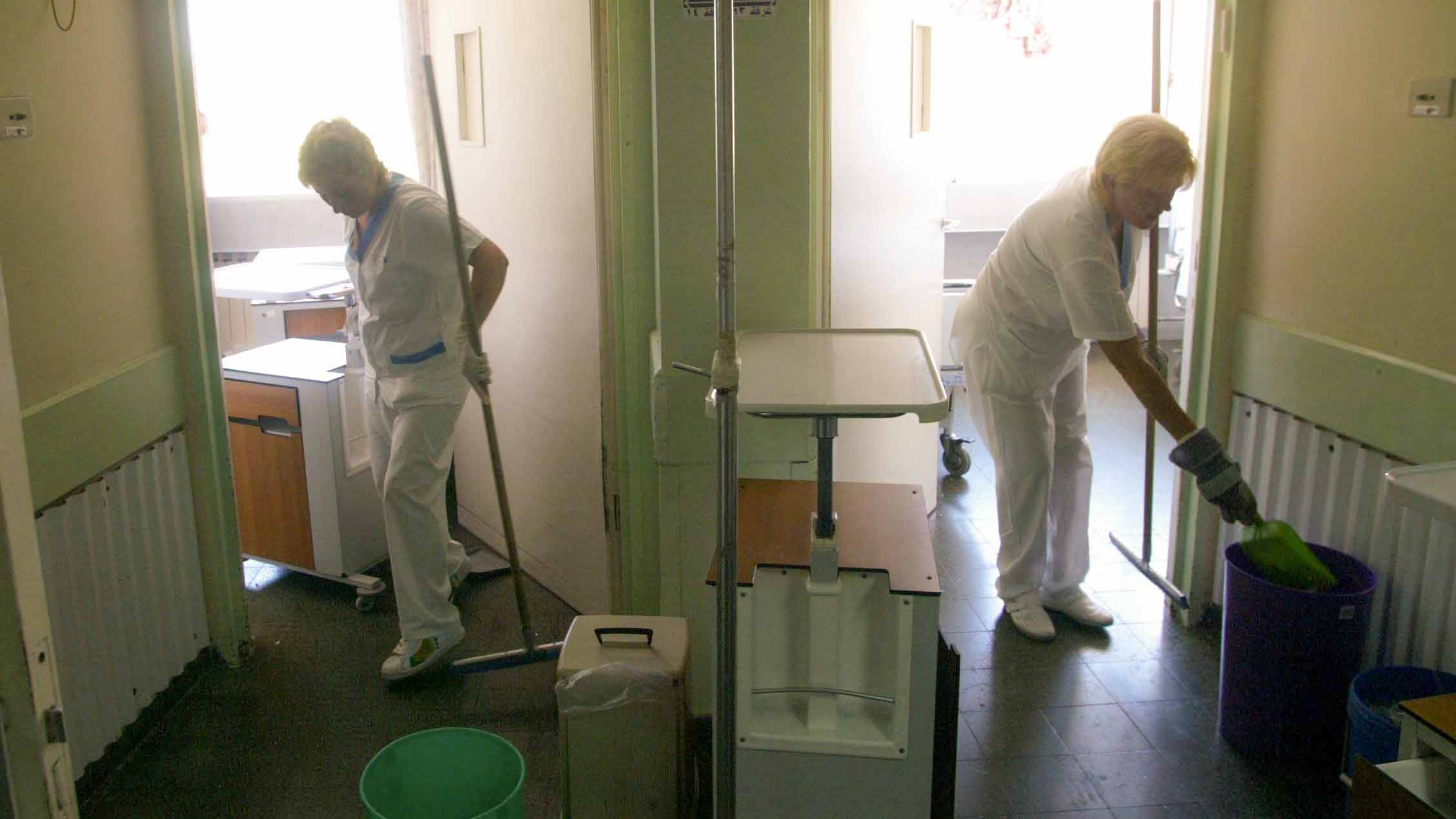"When we were contract workers we never had anywhere to eat. Our employers never made sure that we had a place, and we had no one to talk to about it. We had to eat sitting on the stairs, or anywhere we could find. Today we eat in the canteen, like any other staff member. We only have to pay 3.5 NIS (1$) for lunch. You can really tell the difference. We used to try to complain to our contractors when we didn't get our money, but they never paid any attention. Now we get everything we need, and I feel much better about coming to work". Otman Asfhan is a cleaning supervisor in the maternity ward, and she is just one of the many examples of a small revolution happening in Israeli hospitals during the past few years.
In Israel, contract employment has been on the rise for at least 20 years. In 2013 statistics showed that about 10% of workers were employed indirectly by human resource companies. Under contract employment, workers are contracted from human resource companies for specific short-term jobs, and are let go when the contract term ends. Apart from offering low salaries and no benefits, human resource companies have often been accused of withholding salaries. “I used to work full time, seven days a week, and get 6,000 NIS. Today my workweek is only six days, and my wages have risen to 7,200 NIS” said one contract employee working in a major Israeli hospital.
A global issue
Low paid and temporary work is by no means an isolated Israeli problem. In fact, it is part of the global trend that has been called by professionals “labor market flexibility”. In the past 30 years the labor market in most western countries has shifted towards lower paying and temporary jobs, with less and less employment security. Many western workers are now employed under temporary contracts (called ‘flexible’ by employers), often hired for short term work, with no benefits and low wages. In the UK it’s estimated that more than five million workers are employed in the ‘gig economy’, and Germany’s famous Mini-Jobs now account for one in five jobs in the country.

Many economists agree that the rise in marginal employment in the west has contributed to the fall in average wages and rise in poverty rates in recent years. Last week an independent study found that more than 4 million people in the UK are trapped in deep poverty, with income less than 50% of the official breadline. Statistics published last year by the German government showed that almost 20% of the population was ‘threatened by poverty’, and the UN special rapporteur on extreme poverty in the west, Philip Alston, recently called rates of poverty a ‘human rights crisis’.
This trend has also posed a challenge to trade unions in western countries. Union membership in all western countries has been declining for decades, and the rise of temporary or zero hour contracts has posed a serious threat to unionized labor. Marginal employees are notoriously difficult to unionize, because of their short term contracts. Workers typically stay on the job for short periods, and employers can easily threaten to fire ‘problematic’ employees, deterring any attempt to organize.
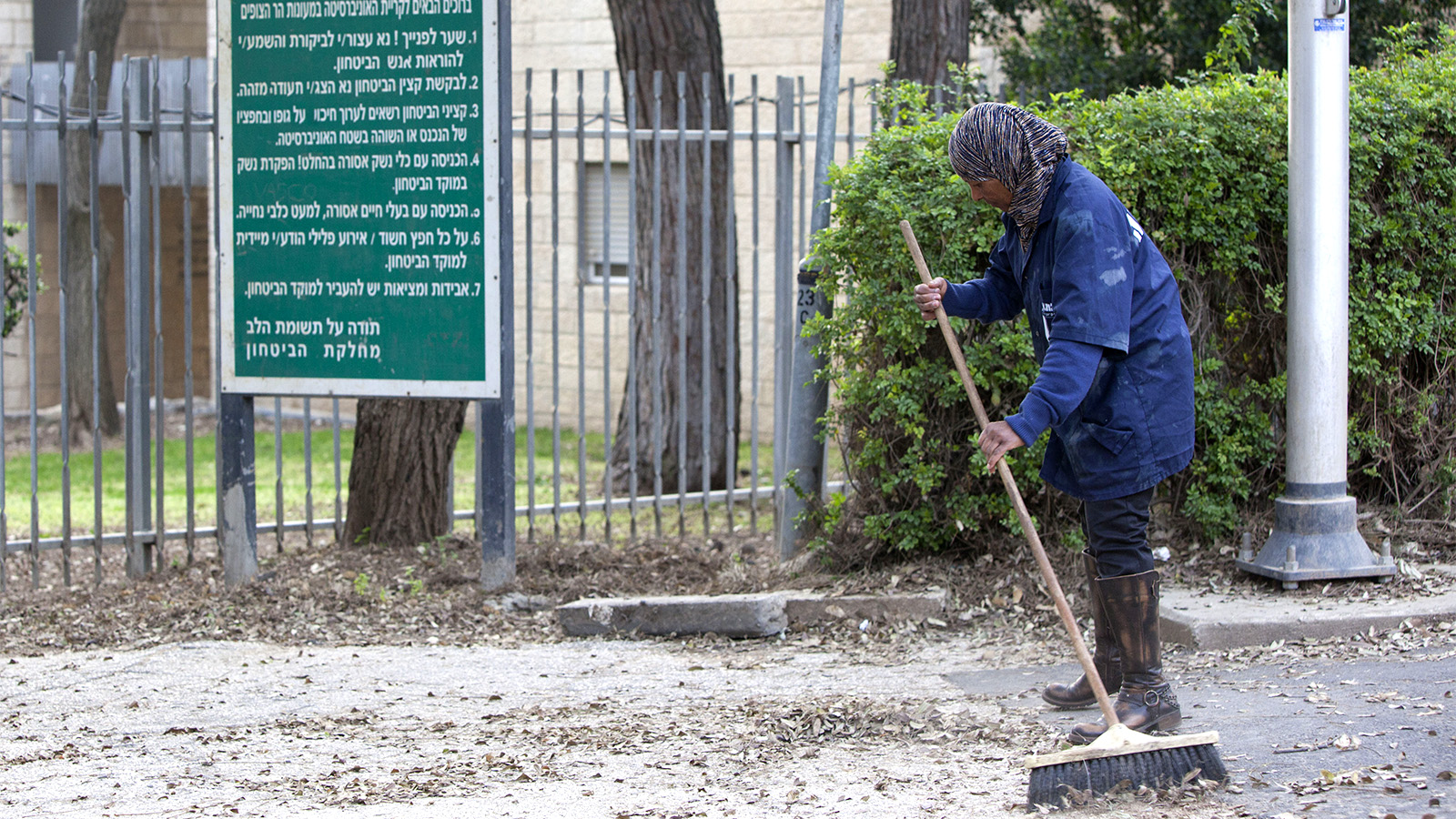
In 2015 the Histadrut, Israel’s largest trade union, reached an agreement with the Israeli government to end contract employment in the public sector. Since then, about 15,000 contract employees in public sector workplaces have been permanently employed directly by the government. This has been largely regarded as a major achievement for the Histadrut, and has raised wages for many school, hospital and government workers.
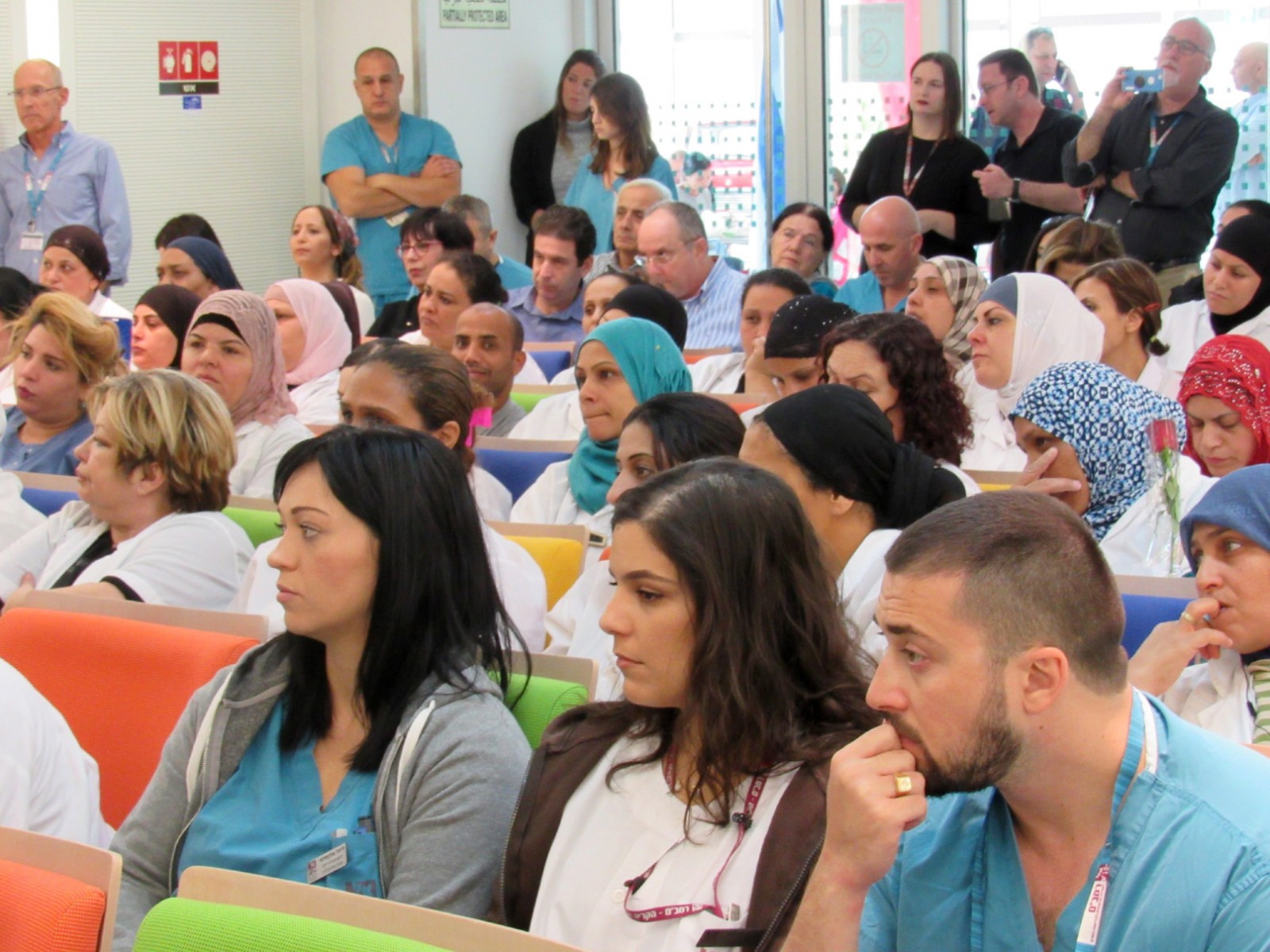
Rambam Hospital (Haifa): "I feel my work is appreciated"
Marom Hamed's day as a cleaner at Haifa's largest hospital starts around 4:00 in the morning. To get to work on time for the 6:30 shift she has to leave home at 04:40, and take two buses to the hospital. When her shift starts a little later she might get up at 5:00 and possibly fit in some time with her children. "I wake them up and take them to pray, my eldest is 10" she says.
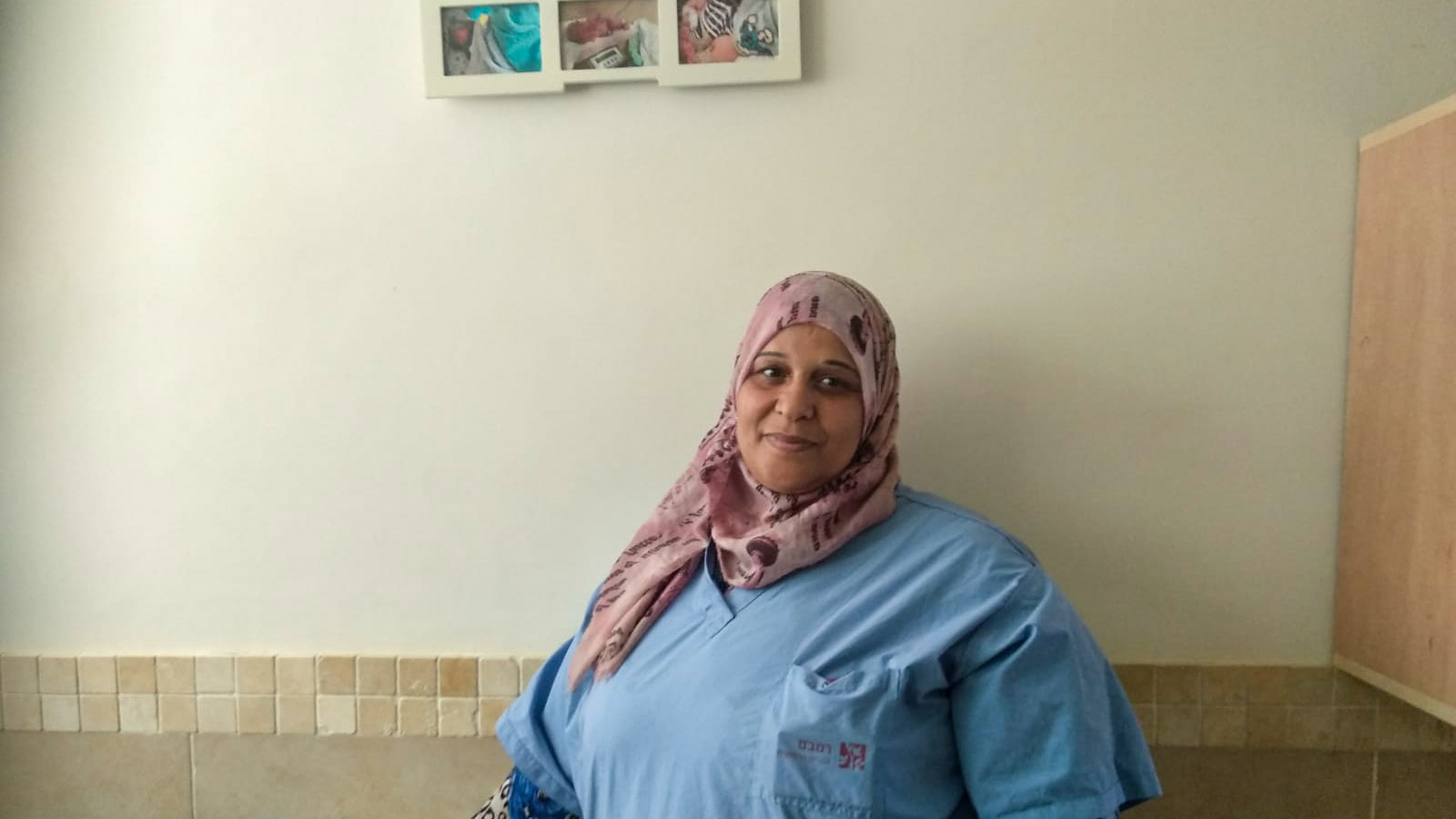
Hamed has been working for 14 years as a contracted hospital cleaner, and has only recently been hired directly by the hospital. "When we were contract workers the working conditions were very bad, with no benefits. We had to demand what was owed", she says. But since becoming a hospital employee things have changed. "They treat us well now. We used to have to wash our uniforms at home, but now the hospital takes care of it. They say it's very unhealthy to put the uniforms in with our home washing" she says.
Maroonah Habi, 31, works with Hamed as a cleaner at the maternity ward. She has to take the train into work every day. Her daily commute takes a little over an hour each way.
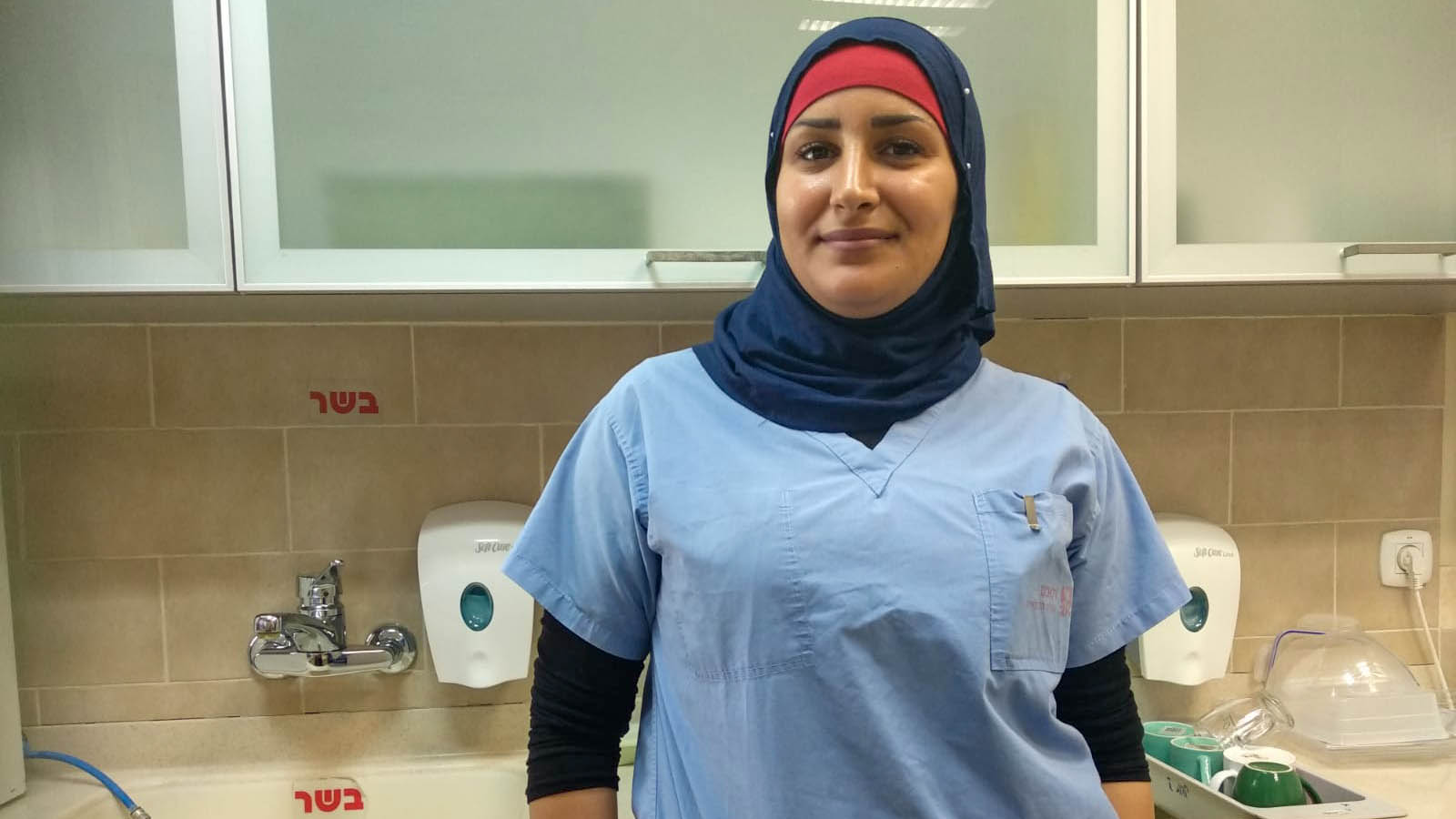
Habi's working conditions have improved a lot since becoming a hospital employee, after working for six years as a contract employee. "In terms of wages it's much better. I used to work full time, seven days a week, and get 6,000 NIS. Today my workweek is only six days, and my wages have risen to 7,200 NIS. On top of that I get holidays, which is something we never used to have as contract workers".
Marina Barbash the manager of the 300 cleaning workers in the hospital says the process of adding the contract workers to the permanent staff completely changed the working atmosphere in the hospital. "The whole process was good, and I think the workers are very pleased about it. You can see their smiles, that says everything" she says proudly.
"Today they have more benefits and better pay. The hospital provides clothes and uniforms, holidays, higher wages. For the same work they used to do as contracted workers they now get paid better with more benefits. Of course, that'll make anyone happier and more motivated". Barbash says that the contractors would often withhold salaries. Today the hospital itself reminds the workers to utilize their different benefits.
Extra training and promotion opportunities
The difference between permanent and contract employment can be seen in the workers training schemes. "Our contractor gave us basic cleaners training, but nothing more than that. It's different now" says Habi. Barbash explains: "Our workers now receive more advanced training, to make sure they don't get hurt on the job or in the long term. We spend a week training them, and once a week we dedicate some time to go over the safety regulations and working routine. We also teach them how to engage with patients, and make sure they're experts in their jobs".
These training schemes have also allowed some of the workers to receive promotions, something that would have been unimaginable in the past. Otman Asfhan is a cleaning supervisor in the maternity ward. First seen in our visit while accepting praises from a new grandmother for "the attitude, the work, the way they respond to the new mothers". Asfhan started off at the hospital as a contract cleaner. Since becoming a permanent employee she's been promoted, and is now in charge of the hospital cleaning staff. "I worked for ten years as a contract cleaner. Two years ago I became a permanent worker, and today I'm in charge of the entire cleaning staff" she says. "I inspect the cleaning and fix the work rotas".
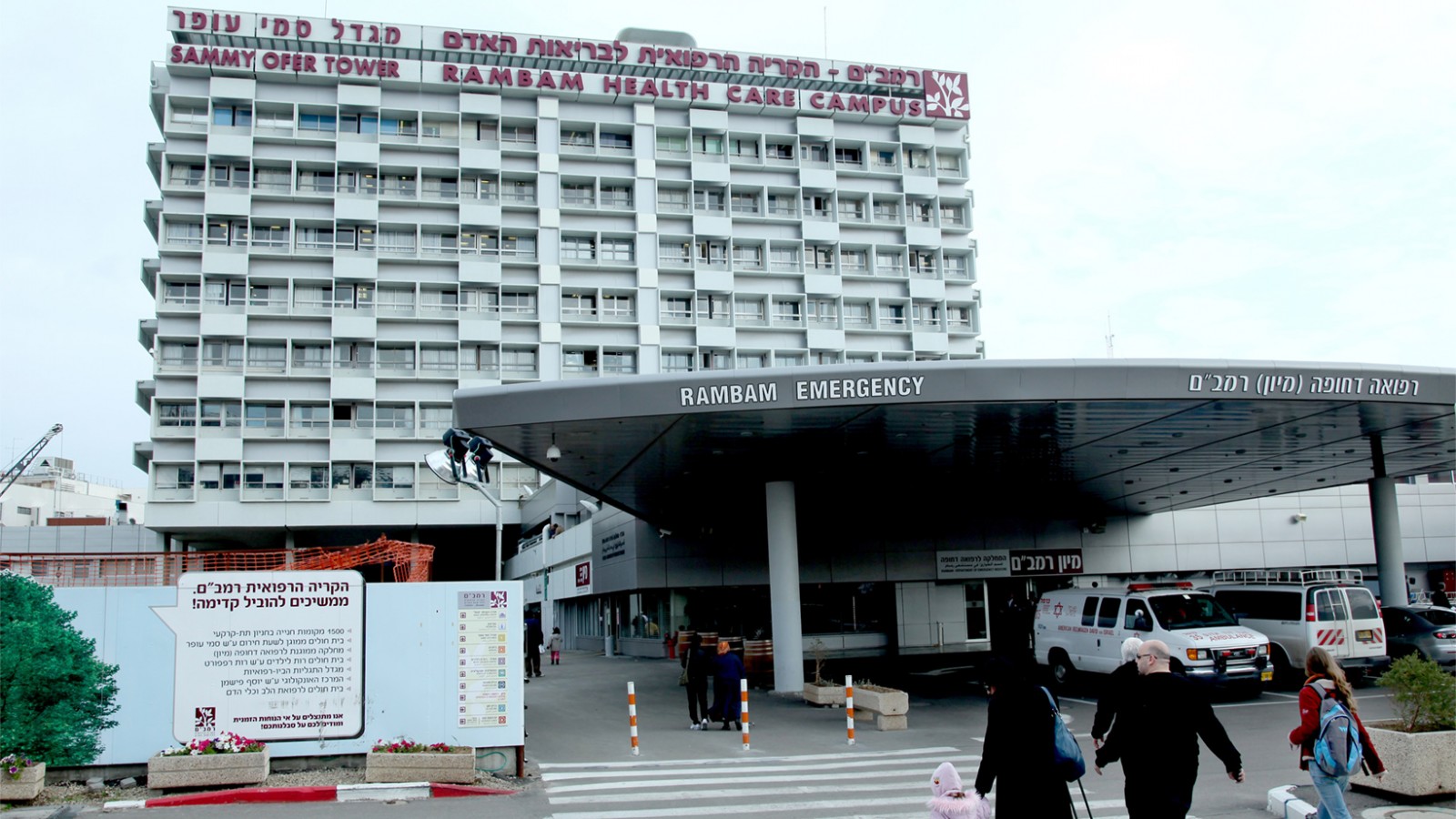
Hamed feels the change even in the small details. "You can really feel the union. When my mother died they called me, came to my house, made sure I was taken care of. The atmosphere at work has changed completely. I like coming to work now, it's fun and I'm committed to the people here. I know the staff in my ward, we go on trips together, outings and meals".
Soroka hospital (Be'er Sheva): beginning the transformation
The Soroka hospital in Be'er shava is in currently in the process of changing many of the temporary workers' status from temporary to permanent. In 2015 the Histadrut reached an agreement with the largest HMO (health maintenance organisation) in Israel (Ha'clalit), ending temporary contracts for cleaners by 2020. 57 out of the 210 cleaners working at the hospital have already been taken on permanently, and the union is trying to speed the process up.
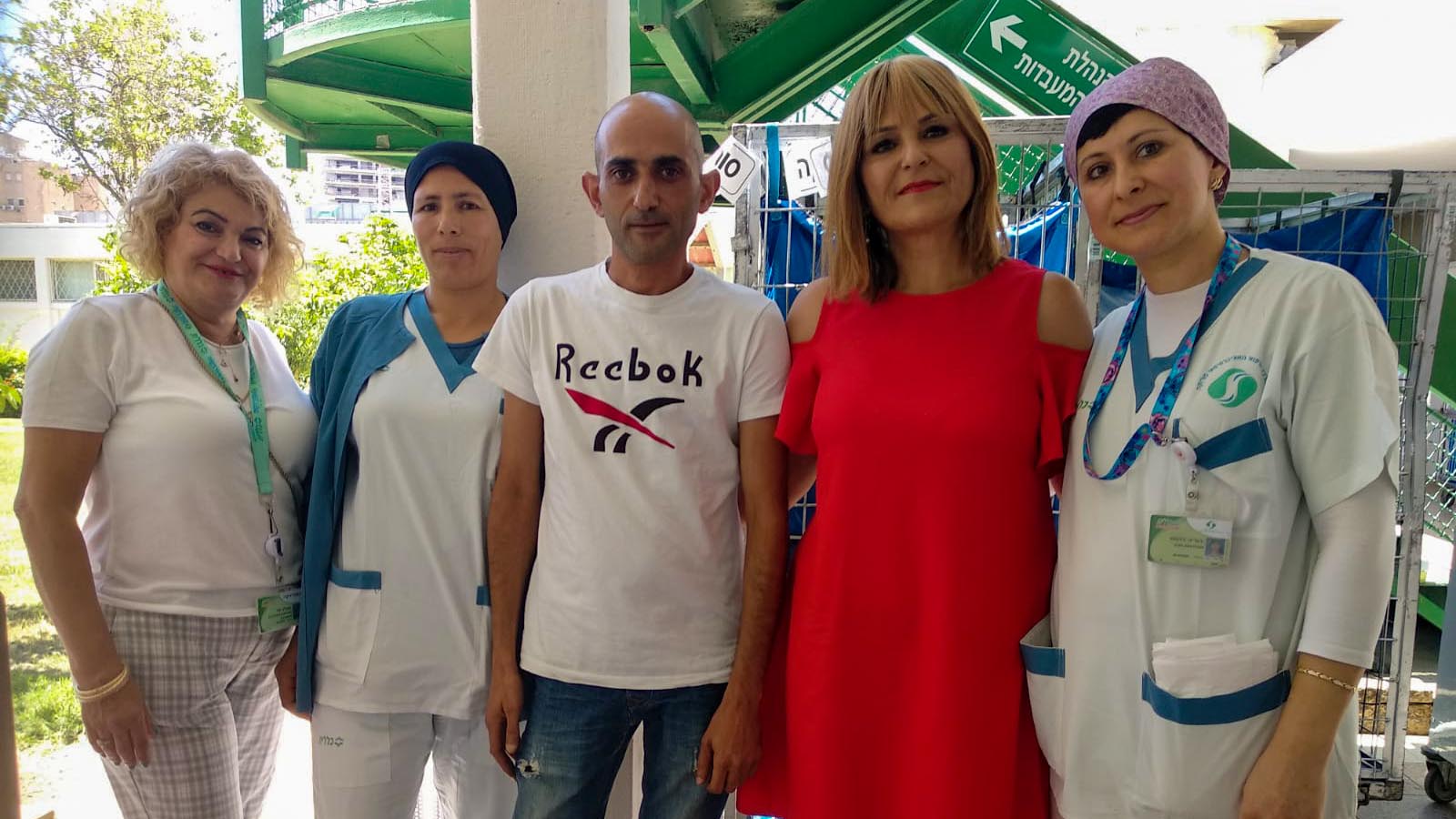
The workers who have been taken on permanently describe a great improvement in working conditions and experience. Hodaya Duetch (45) started working as a cleaner at the Be'er Sheva hospital a year after immigrating to Israel, and spent 13 years as a contract worker. "Two years ago I became a regular worker and you really feel the change, especially the wages. When we worked under temporary contracts we'd be employed for 9 months, and then get fired for 3 months. That way they wouldn't have to give us a raise. Then they'd take us on again, for the same basic salary". That reality has changed for her now. "The hospital pays 150% for night shift, when we work on weakends and holidays we get 200%. And they wash our uniform for us. We even get a gift a couple of times a year".
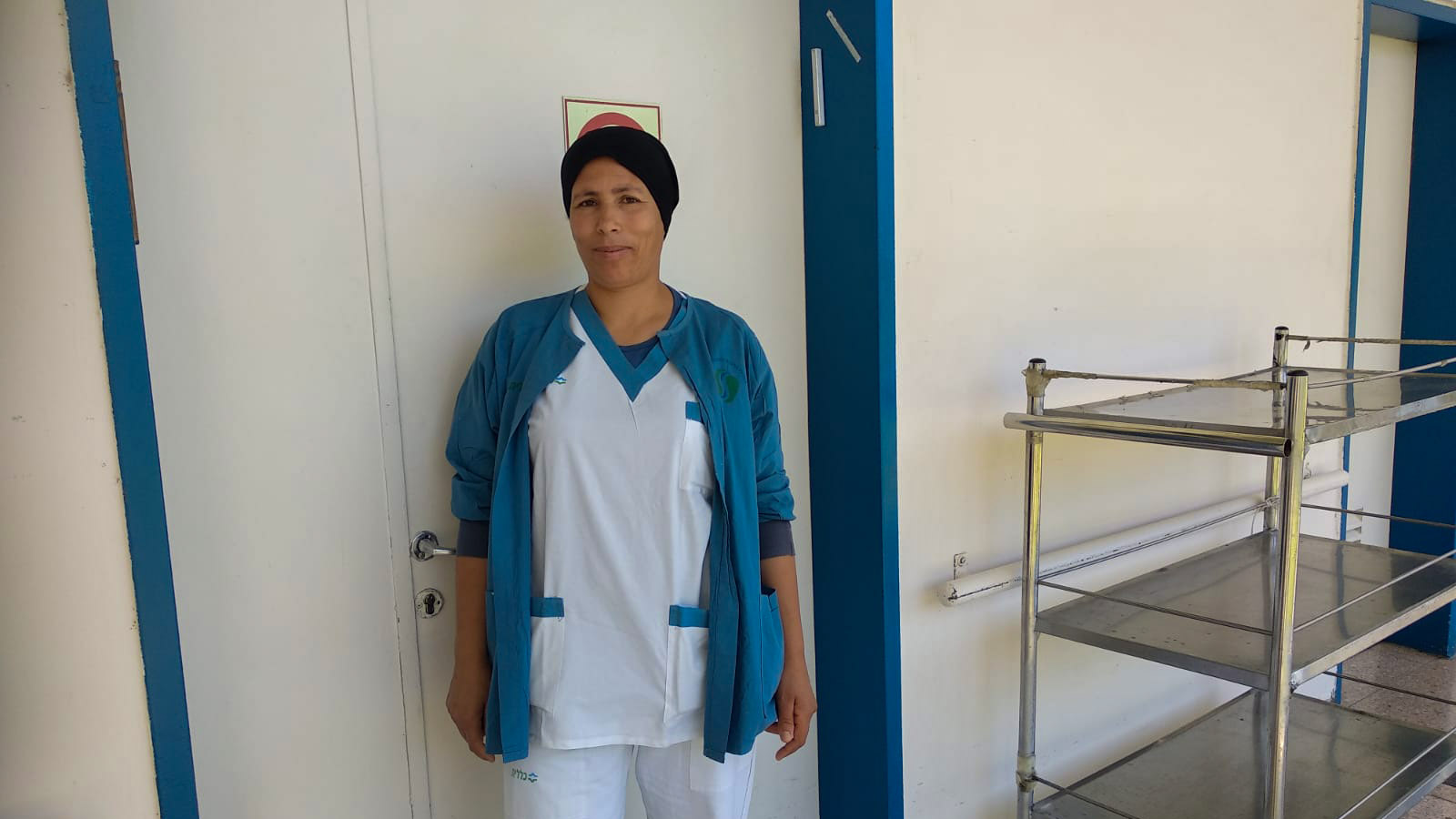
Yasmina Abu Duba (43) lives in a bedouin settlement near Be'er Sheva, she had her 6 children in the hospital before ever starting to work there. She says that as a contract worker she gave up on getting trying to get her employer to pay her full wages. "I know they took away stuff from the paycheck, but I didn't even bother to check. I knew that even if I would say something it wouldn't help".

Gila Levi (62) from Be'er sheva has been head of the local union branch for the past 10 years, and sees the concept of short-term contract employment as morally wrong. "I think it just shouldn't exist. It's really hard to see two workers doing the same job and one of them get all the benefits and wages while the second one doesn't. Even before the agreement was signed, we were constantly trying to get them to take on the contract employees permanently. Since the agreement we keep getting quotas, and we take in as many as possible. I've been promised to be allowed to take 60 additional workers on permanently till the end of the year. "Heading the union in a working place where there are also contract workers who aren't unionized is very frustrating. It's hard not to be able to help the workers around you. I see a person and I don't care who his employer is, I want to help him". Occasionally she would intervene on behalf of a contract employee. "I managed to prevent some workers from getting fired" she says.
Reality shows the theory of "efficiency" and "cost reduction" the door
Levi explains that "finding workers isn't easy anyway because of the low wages, and there's just no good reason not to give the worker the entire amount the management pays the HR company". Levi has witnessed the change in the hospital herself. "20 years ago there were only regular hospital workers. Then they started bringing in the HR companies and now they're going back to all of us being proper workers. They're loyal, committed workers. A contract employee gets minimum wages, that's about the daily wages of a doctor here. The staff also want them to become regular workers. As a union leader, I care about the smaller workers. The big ones don't need me".
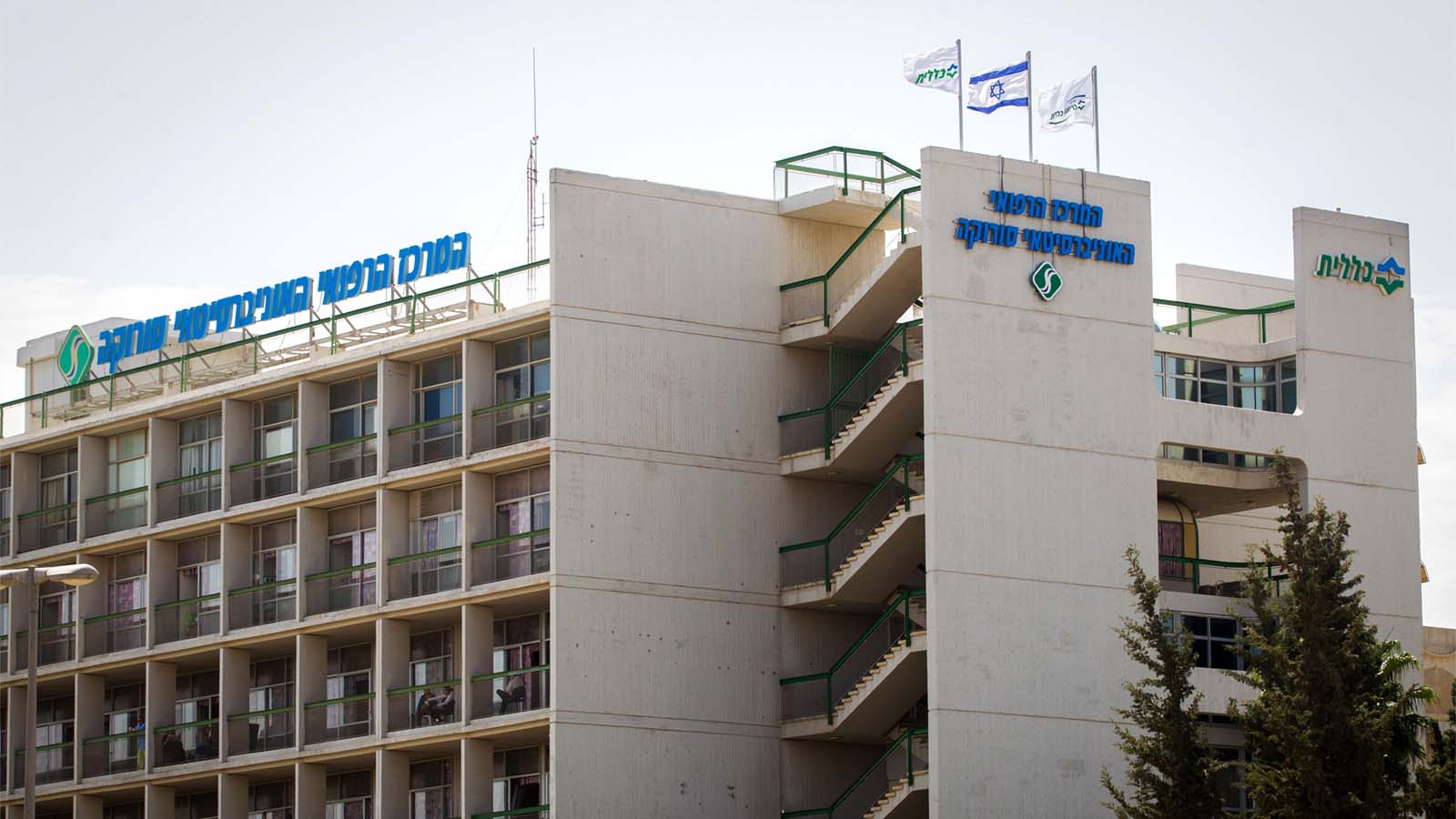
Rina Zer is in charge of the cleaning services at the hospital, and she states clearly that the theory that hiring contract cleaners is cheaper or more efficient is simply wrong. "It's much harder to work with a contractor. I would rather have all cleaning personal working directly for the hospital. There is such a shortage of cleaners here". As an employer, she thinks the main problem is that workers don’t have a sense of belonging. "There is such a problem of turnover, and that's just not cost effective. If the workers were employed directly by the hospital, they would not quit their jobs so easily. As a manager I see how dissatisfied they feel. A lot of the workers are willing to leave their job in the hospital and go work in some other place that will give them 2 shekels more per hour". Apparently, there are a lot of cleaning jobs in the area, so the competition is high.

"We need 35-42 more cleaners daily. Part of the competition is even from our own staff because the cleaners will get better pay for cleaning a house, and the work's easier. The contractor brings twice as much as needed because there is such a problem of turnover. The minute you work directly for the hospital it's harder to leave and there's no reason to. People want the structure, and it's considered a good place to work in. If you have a mortgage or a loan to pay back the stability of a decent work place is attractive. The more workers we can directly employ the more cleaners we'll have".




